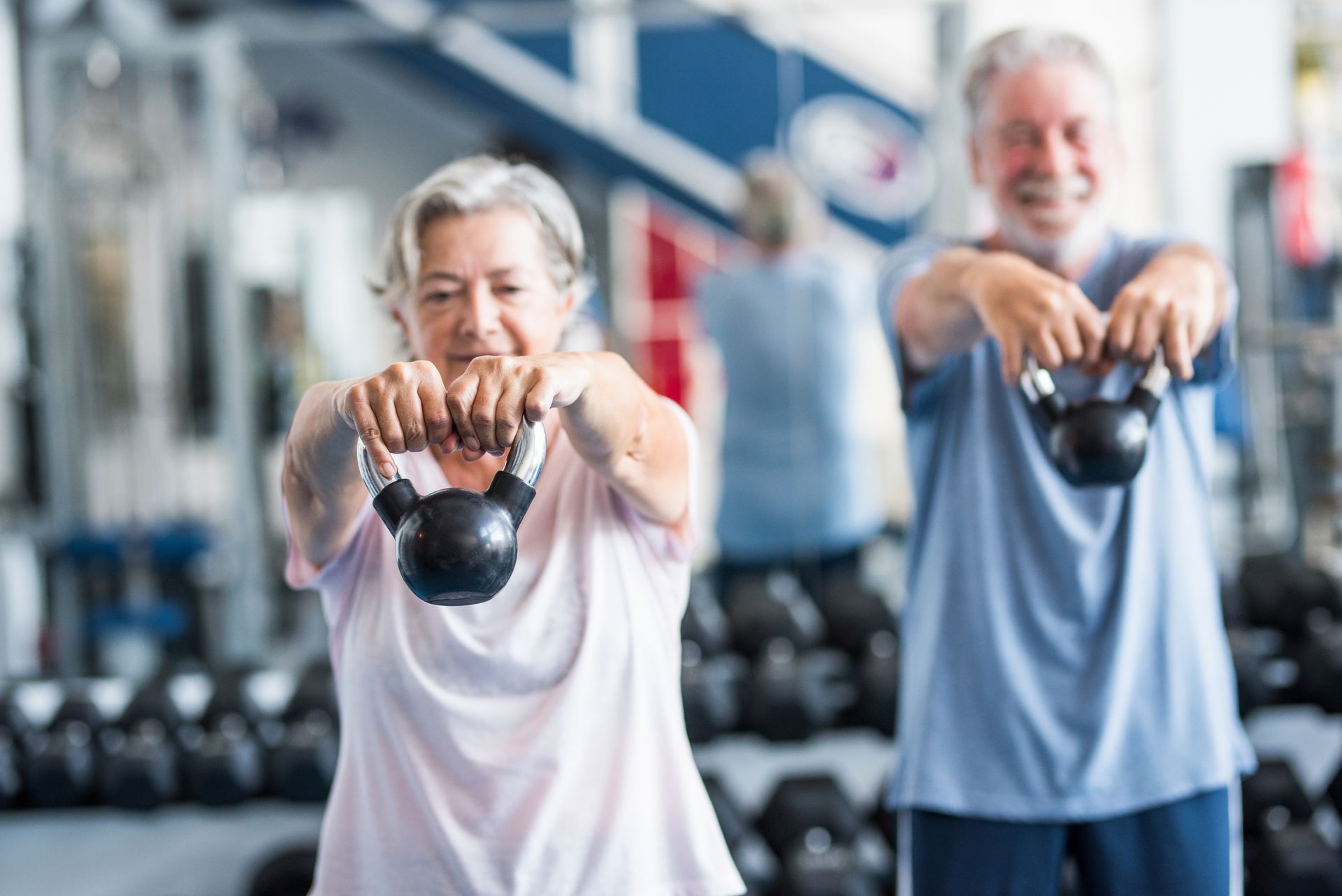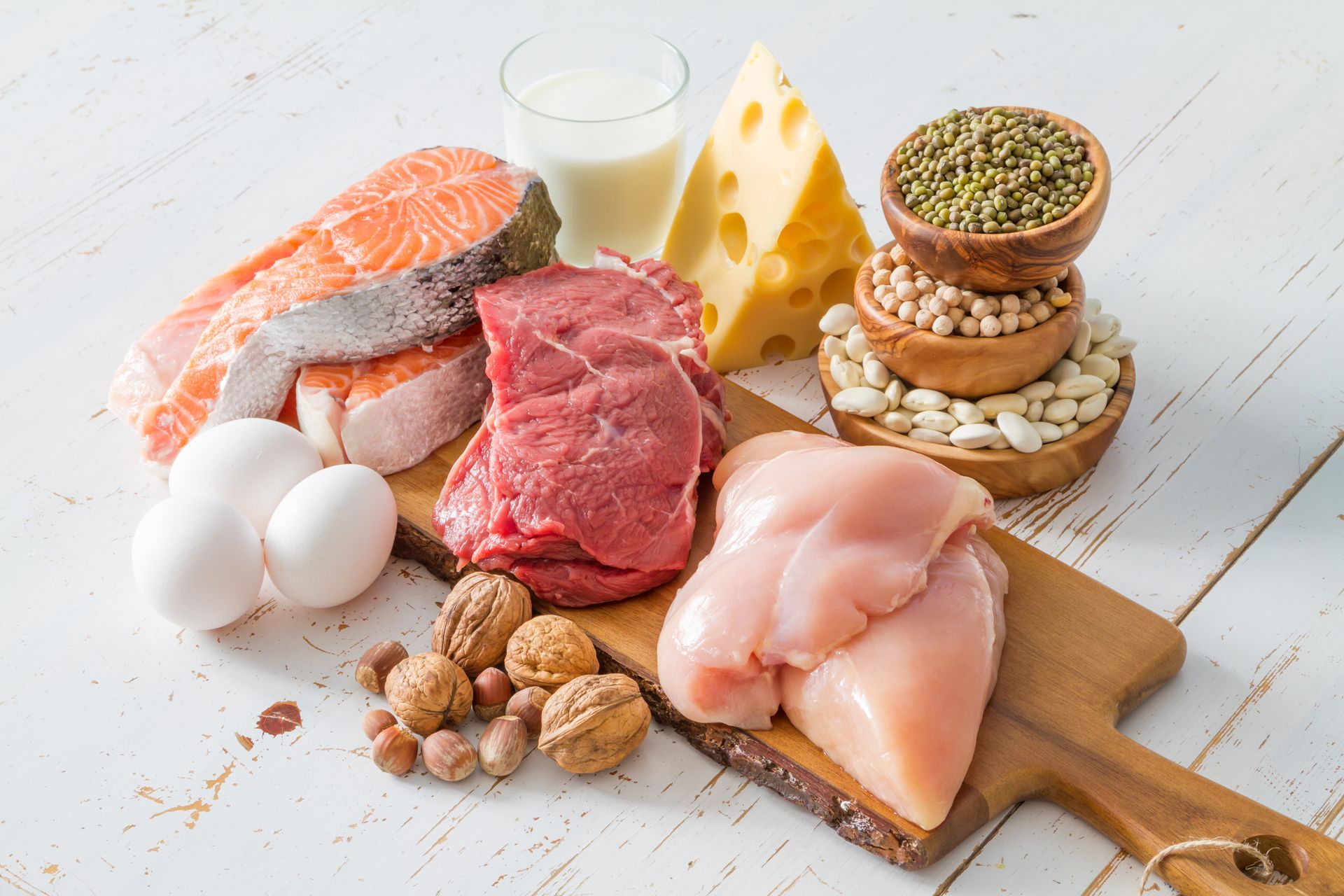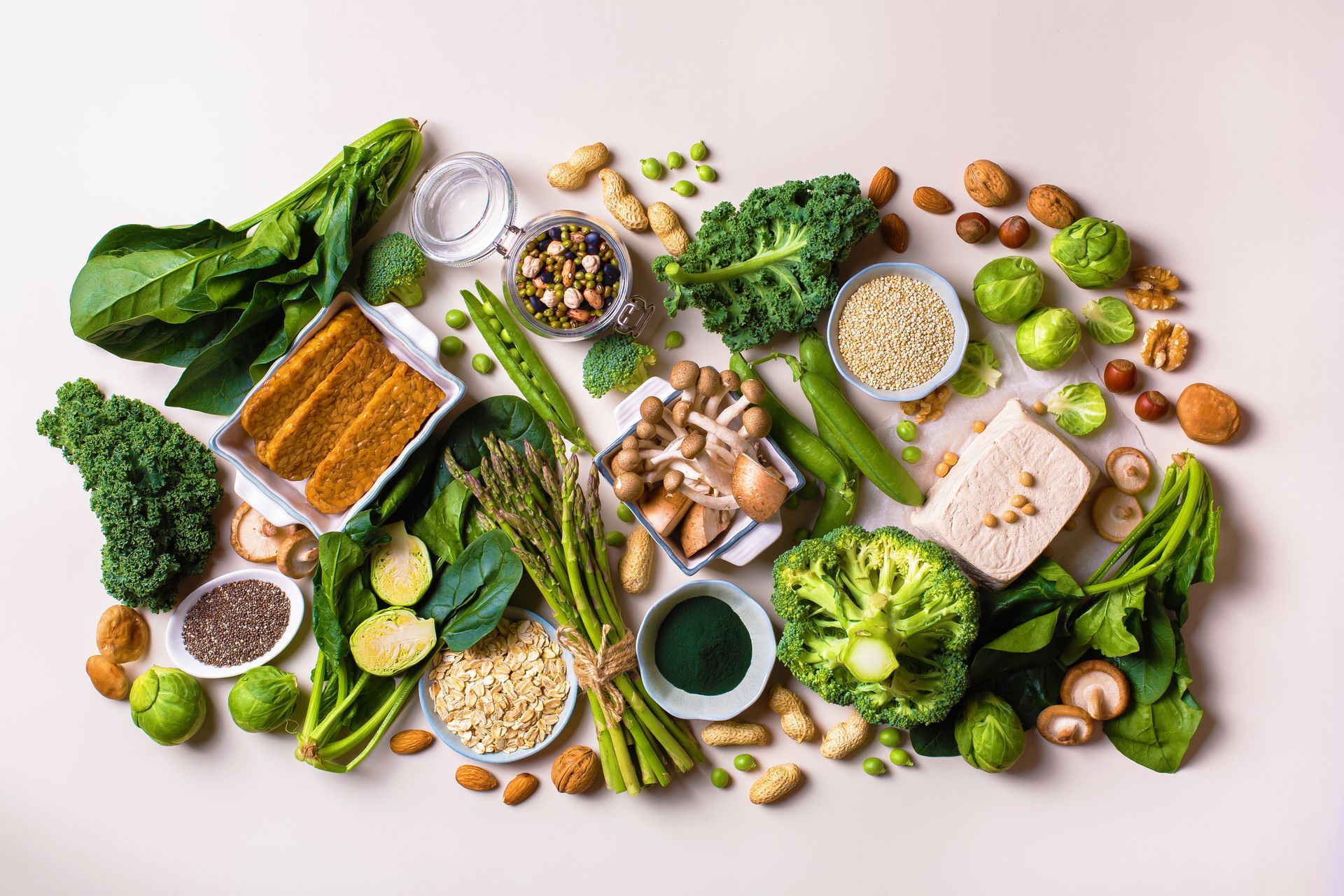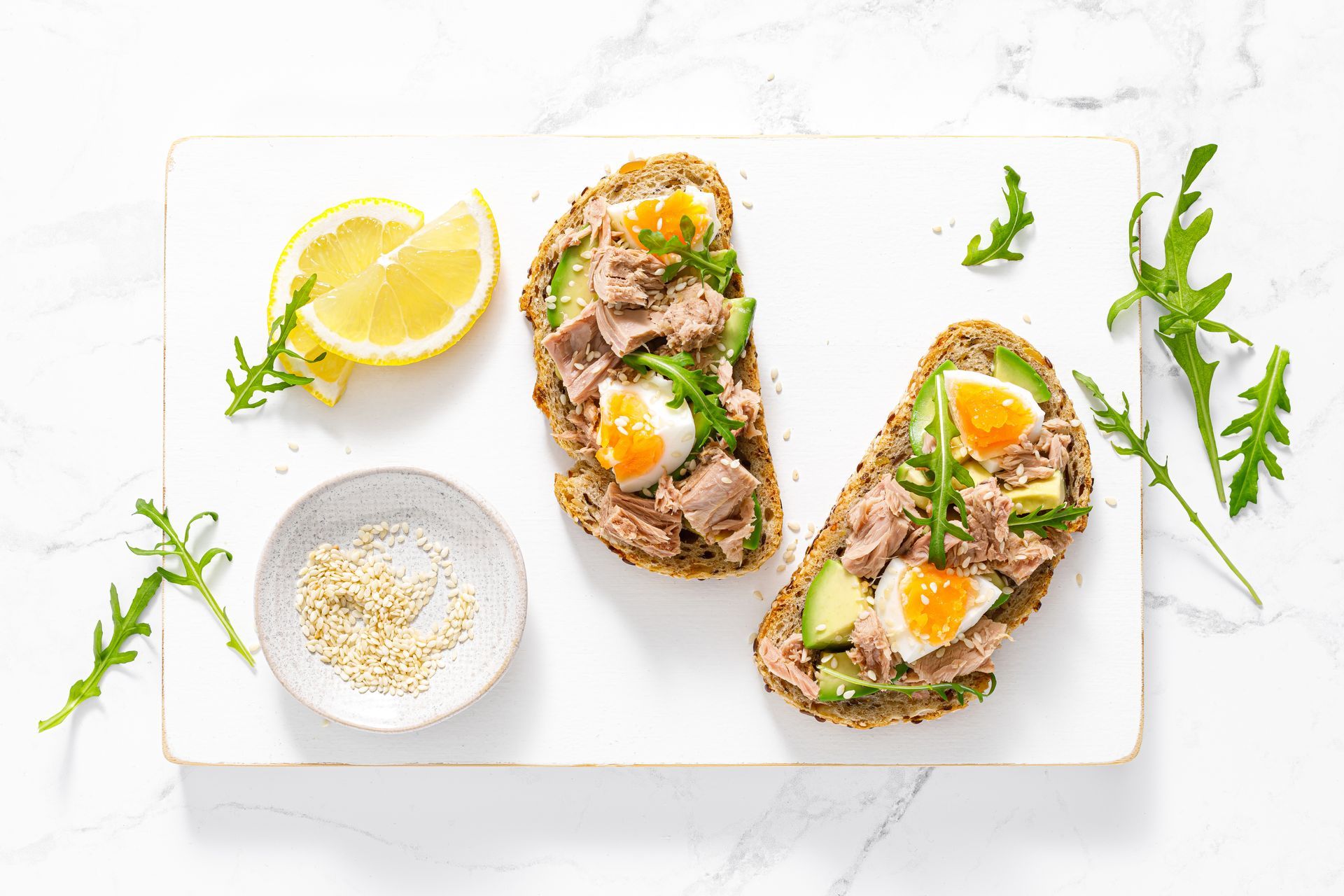Protein for Healthy Aging

As we age, our bodies undergo a natural process of decline. This includes a loss of muscle mass, strength, and bone density. One of the most important nutrients for combating these changes is protein. Protein is essential for building and maintaining muscle, bone, and other tissues. It also plays a vital role in immunity, hormone production, and enzyme function.
Unfortunately, many older adults do not consume enough protein. This can lead to several many kinds of health problems, including sarcopenia (muscle loss), frailty, and osteoporosis.
How Much Protein Do We Need?
The recommended dietary allowance (RDA) for protein is 0.36 grams per pound of body weight per day. However, this may not be enough for older adults. Research suggests that older adults may need to consume 0.5 - 0.6 grams of protein per pound of body weight per day to maintain muscle mass and function.
Sources of Protein
There are many good sources of protein available, including both animal and plant-based options. Some of the best sources of protein for older adults include:
- Lean meats - chicken, turkey, fish, shellfish, lean cuts of pork
- Eggs - a great source of complete protein, containing all essential amino acids
- Dairy products - milk, yogurt, cheese
- Legumes - beans, lentils, chickpeas
- Nuts and seeds - almonds, walnuts, peanuts, pumpkin seeds
- Tofu and tempeh - soy-based products that are good sources of protein and iron
- Quinoa - a complete protein grain, high in fiber and other nutrients


Incorporating Protein Into Your Diet
There are many ways to incorporate protein into your diet.
Here are a few tips:
Start your day with a protein-rich breakfast.
This will help you feel full and satisfied throughout the morning. Some good options include eggs, yogurt, oatmeal with nuts and seeds, or a protein smoothie.
Include protein in every meal and snack.
This will help you meet your daily protein needs. Some good options include grilled chicken or fish, lentil soup, bean salad, or a handful of almonds.
Add protein powder to your diet.
This is a convenient way to get extra protein, especially if you have trouble meeting your needs through food alone.
Choose protein-rich snacks.
When you're feeling hungry between meals, reach for a protein-rich snack instead of something sugary or processed. Some good options include fruit with nuts or nut butter, a hard-boiled egg, cottage cheese, or Greek yogurt. There are even some excellent protein-rich dessert options like our Mug Cake recipe on page 3!
Cook with protein-rich ingredients.
This is a great way to add protein to your favorite dishes. Some good options include adding beans to your chili, using ground turkey in your spaghetti sauce, or topping your salad with grilled chicken or fish.

Benefits of Adequate Protein Intake
There are many benefits to consuming adequate protein as we age.
These benefits include:
•Increased muscle mass and strength
•Improved bone density
•Reduced risk of falls and fractures
•Improved mobility and function
•Enhanced immune function
•Reduced risk of chronic diseases
•Improved quality of life
If you're concerned about your protein intake, talk to your doctor or a registered dietitian. They can help you create a personalized plan to ensure you're getting the protein you need to stay healthy and active as you age.

Incorporate more protein into your diet!
•Plan your meals and snacks ahead of time. This will help you make sure you have protein-rich options on hand.
•Make protein-rich recipes at home. This is a great way to control your ingredients and portion sizes.
•Pack protein-rich snacks for on-the-go. This will help you avoid unhealthy snack choices when you're feeling hungry.
•Don't be afraid to experiment with different protein sources. There are many delicious and nutritious options to choose from.
•By making a few simple changes to your diet, you can ensure you're getting the protein you need to stay healthy and active as you age.
Here are a few more tips for making protein-rich meals and snacks:
•Make protein the star of your plate. Fill at least half your plate with protein-rich foods like lean meats, fish, tofu, or beans.
•Choose healthy cooking methods. Grill, bake, or broil protein instead of frying.
•Add variety to your meals. Try different protein sources throughout the week to keep things interesting.
•Make protein-rich snacks. Snack on nuts, seeds, yogurt, hard-boiled eggs, or cottage cheese.
•Pair protein with other nutrients. Include fruits, vegetables, and whole grains in your meals and snacks for a well-rounded diet.
•By following these tips, you can easily incorporate more protein into your diet and enjoy the many benefits it has to offer.











